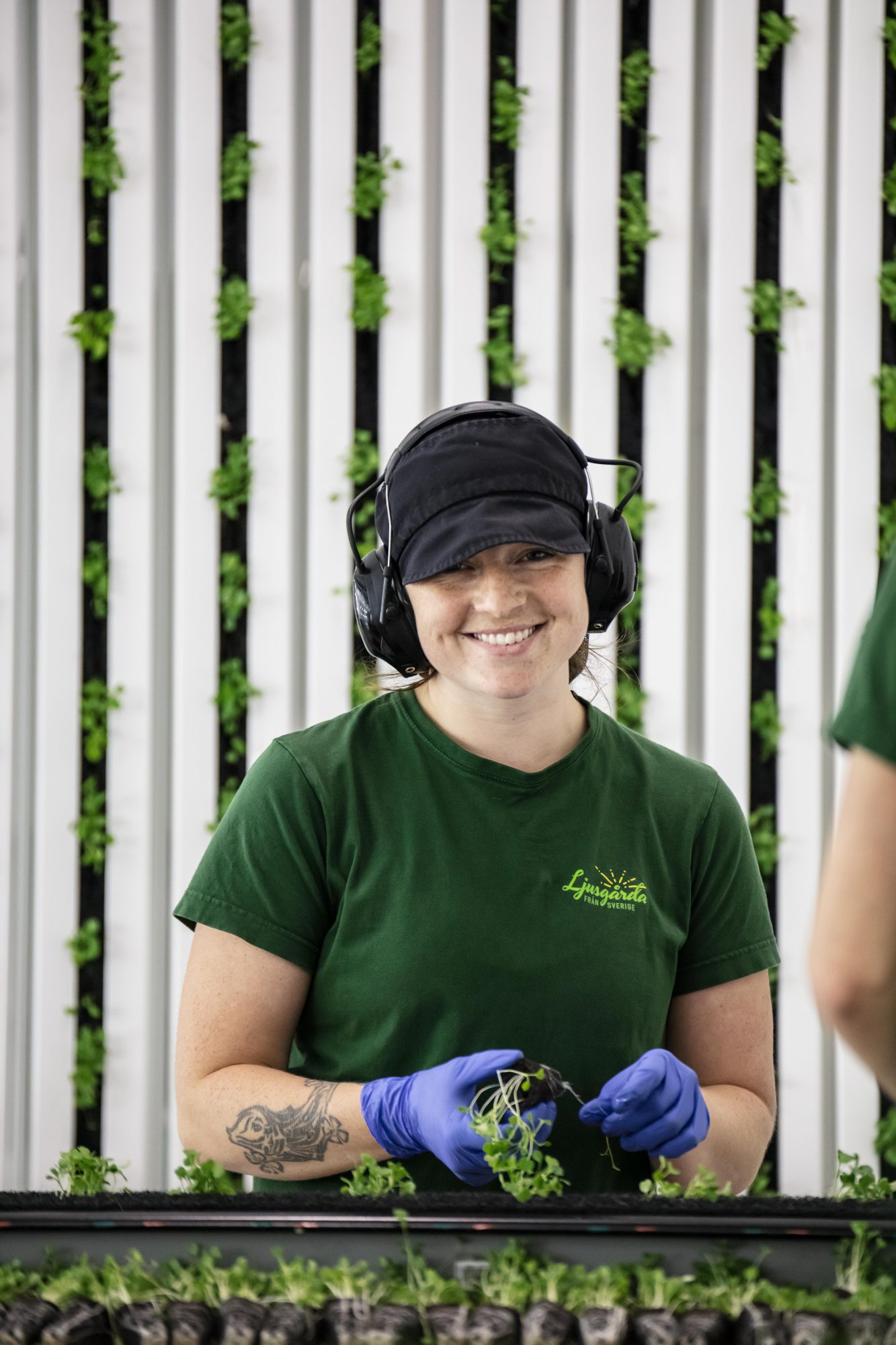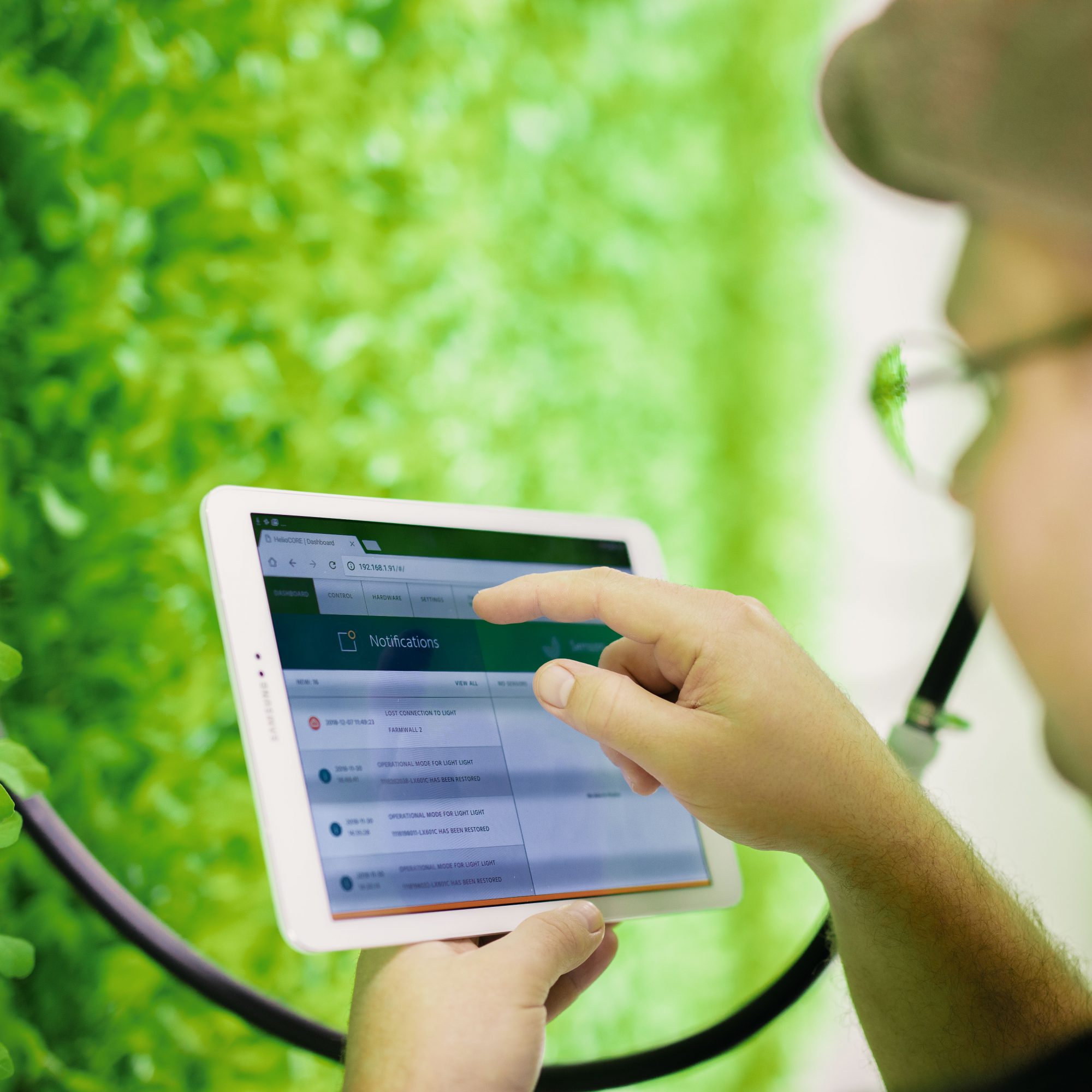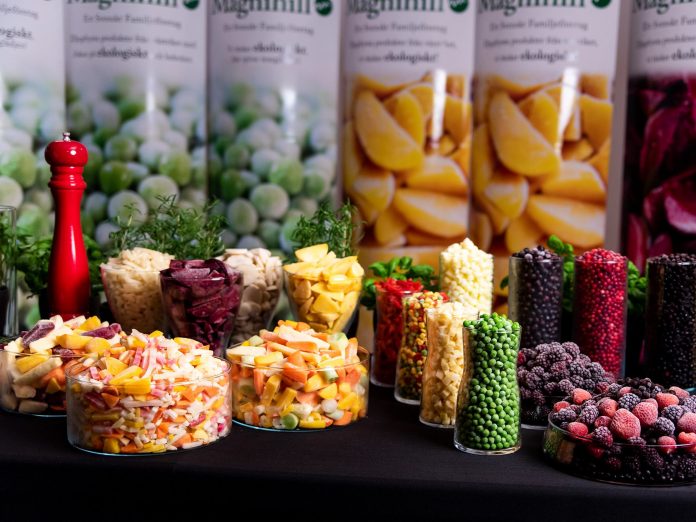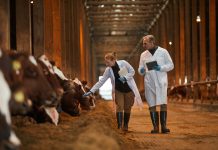Bengt Fellbe, Program Leader, SSEC, Swedish Surplus Energy Collaboration, discusses the importance of training people with the right skills to work within the Swedish sustainable food industry
There is a lot of talk about circular and sustainable processes in the modern food industry. There is a lot of work and investment in innovations that revolve around digitization, AI, automation, aquaponics, vertical cultivation, circular bio-based economic models – and that’s good. BUT, without a skilled workforce, the development will not take place.
Region Skåne
Region Skåne in southern Sweden has perceived the situation and is announcing project funds to help. This is how they describe the situation.


The food industry and agriculture have always been the heart of Skåne. Skåne accounts for about a third of Sweden’s food production. Food is also part of our Scanian identity. This is how we want it to be in the future as well. But there is a concrete threat.
The Scanian food industry and agriculture have a hard time finding the right people. If we do not act now, we may soon have serious problems in this Skåne industry. We must think new.
There are several reasons for all this. Just like in other parts of society, there is rapid technological development and digitalisation in the food industry. It places demands on completely new skills and the food industry also needs to become better at attracting and taking care of young people, new arrivals and people with different backgrounds.
There are jobs. But it is the matching between those who want to hire and those who are looking for work that is lacking. In other words: we are no longer training the right people right for the food industry.
Initiatives
There are, of course, several different good initiatives throughout Sweden that SSEC has initiated.
In the municipality of Bjuv, “Recruitment training” has been carried out aimed at the food industry in collaboration between the company in question with recruitment needs and the Swedish Public Employment Service. A company-friendly tool that the employment service in Sweden has in its toolbox. The company that has skills needs and needs to recruit is involved in the entire process together with the employment service.
SSEC has been helpful in developing requirements profile and course content together with companies in the industry, which has resulted in a Higher Vocational Education (HVE) – “Sustainable food entrepreneur”.
About the Higher Vocational Education “Sustainable food entrepreneur”
By studying to be a Sustainable Food Entrepreneur, you will be involved in developing food from a sustainable, circular perspective. You will gain both theoretical and practical knowledge about the Swedish sustainability work. In addition, you get the opportunity to try out your own ideas in consultation with professional food producers.
The education gives you a basic competence in sustainability and different types of food production, as well as the opportunity to specialise through LIA internships, (Learning at Work).
You also gain knowledge about, for example, the global sustainability goals, sustainable plant breeding, entrepreneurship, sustainable animal husbandry and hygiene and safety.
Ljusgårda in Tibro municipality is an innovative company in vertical cultivation. The company is expanding enormously to meet the needs of the market and needs to recruit staff within several competence levels. These are horticulturists and agronomists with a University degree, operations managers from the Higher Vocational Education, preferably with competence and experience of the technology behind indoor cultivation-vertical cultivation, and a large number of employees in production. In this technology-intensive horticulture, there are changing requirements for competence compared with a traditional horticulture. These are completely different conditions in that the production in this case is automated, digitized and uses the latest technology in measurement and sensor technology. Another important factor is that it is a year-round business and cannot rely on seasonal employees.
In the Skaraborg region and Tibro municipality, SSEC has therefore initiated a close collaboration between the company, the Swedish Public Employment Service and the municipality’s labour market unit. The aim is to build structures that support and reflect the need for skills supply in the food industry in both the short and long term. In Northwestern Skåne, 11 municipalities collaborate in adult education. The municipality of Bjuv, together with the municipality of Åstorp, will this autumn, offer basic adult education aimed at the food industry. The goal is to supply a strongly growing innovative industry with competent production personnel in the long term.
As I said, the agrarian industry and the food industry’s technological development are moving at a furious pace towards being both sustainable and competitive. But, without competent employees, we will not get anywhere.
We cannot miss this golden opportunity – with the right education, we help thousands of people to work and increase their quality of life, while companies, municipalities, regions, and countries become socially, economically, and climate-sustainable.
Please note: This is a commercial profile
© 2019. This work is licensed under CC-BY-NC-ND.











